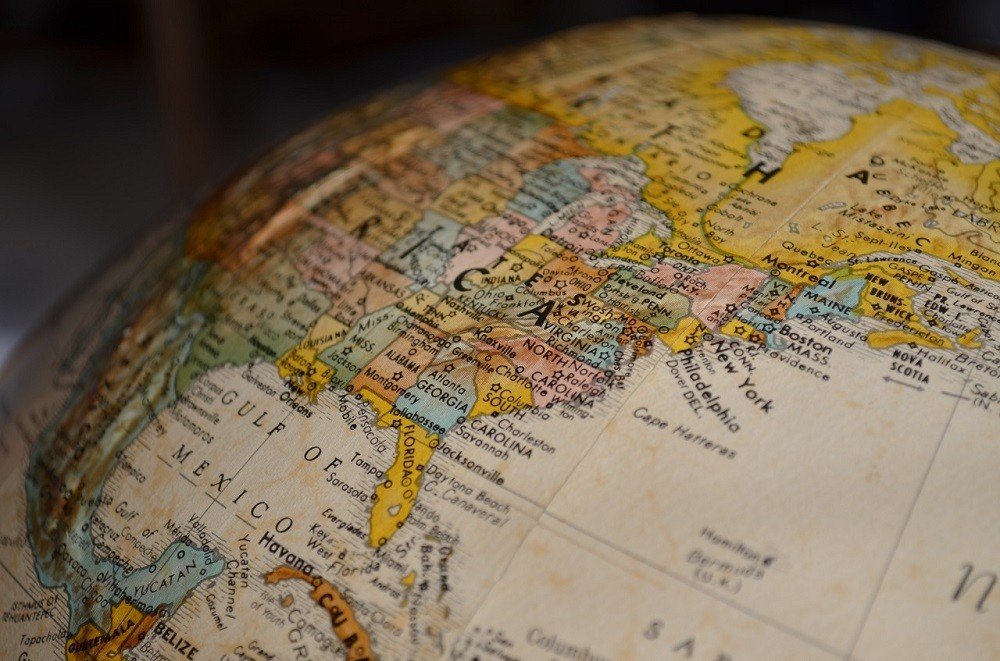Business
How successful companies use globalization to best promote their products
Carry out the necessary research before you dive into unknown waters if you want to find global success.

Most smart business owners and marketing managers understand the need for globalization when it comes to increasing sales. But when the time comes to seal the deal, they fall short of the mark.
Why is this? If you have a successful product that’s battering sales records in your home market, what’s stopping it from being a roaring success overseas as well? Why can’t you use globalization to promote your products and widen market share? Here’s what successful companies understand about globalization and how to get it right.
Speak your customer’s language
Parlez vous français? No? If you don’t speak your customer’s language, whether it’s French, German or Japanese, why would you expect them to speak yours? Research from the Common Sense Advisory backs this up. A massive 87 percent of consumers surveyed who don’t speak English won’t consider buying from an English website.
Successful companies use globalization to best promote their products. But, they make sure that they apply targeted localization to each new market. This doesn’t just mean that they translate their website into another language or two. They go beyond words to consider the entire user experience. Their payment preferences, local currencies, units of measure, preferred promotions, ideologies, and even humor.
Because, even if your product is truly exceptional and has the potential to change the buyer’s life; if they can’t read the instructions, or get past your homepage, you don’t have a chance of selling. Globalization to promote your products will only work if you put the same amount of care and attention into foreign markets as you do at home.
Understanding local channels
You’ve heard the expression “think global, act local” used many times. But a lot of people still fail to grasp what that really means. Take a product around the world with the same marketing strategy and distribution approach everywhere you go, and you’re doomed to certain failure. Smart companies understand that they need to use local channels to promote and sell their products.
You may be used to Facebook ads and optimizing for Google, but in China, neither of these channels exist. You’ll need to get familiar with Baidu and WeChat if you want your digital promotions to be heard or your website to be found.

You may be used to Facebook ads and optimizing for Google, but in China, neither of these channels exist. (Source)
If you’re launching an app, you can forget about Google Play completely. The Chinese app store situation is a completely different panorama, with hundreds of small app stores to get used to. You’ll need to figure out the best ones for your app before you waste time and money pursuing the wrong launch strategy. Smart companies dedicate time to research extensively before taking the leap and often invest in local expertise.
Advertising and promotion laws vary from country to country, as well. You don’t want to be met with a hefty fine for what may be considered false advertising in one country, or failure to comply in another. And you certainly want to avoid getting kicked out completely! Just ask Google about its Chinese experience. Remember that you may need to develop different payment strategies when launching your products abroad. In Germany, for example, most people prefer paying for things in cash and shirk away from using credit cards. So, you’ll need to make it as easy as possible for your customers to buy if you want to maximize sales.
Understanding cultural sensitivity
Successful companies know that using globalization to their advantage is about respecting the local culture. So, be sure to find out what’s a taboo in Iran, what colors bring bad luck in India, or what images are offensive in parts of Asia. Cultural sensitivity can be very subtle, with elements, such as colors, icons, images, and symbols all having the power to insult or disrupt.
Culture is something developed and shared over hundreds of years; it’s not something to be taken lightly. Even jokes in the same language don’t work for all audiences who speak it. Successful companies use globalization to best promote their products, but even successful companies have fallen at the cultural hurdle. When you work hard at building your brand reputation at home and spend years generating buyer trust, you don’t want to lose it in an instant by making blunders in your global marketing.
Airline company, Braniff International, made a monumental mistake when they promoted their services in Mexico. Without realizing that the translation of “fly in leather” meant “fly naked” in Mexican Spanish, they were laughed out of the country. Even the biggest players have racked up many a learning experience in their journey to globalization. Coca Cola’s brand name in Chinese was translated to “Bite the Wax Tadpole!” Not exactly the message they were hoping to get across. Smart companies localize their brand name, color, icon, and image, but they do so without diluting their brand.
Using globalization well isn’t exactly easy. But, get it right and you can have access to an international market of potential buyers. You can find new audiences for your products and services and increase your brand recognition. So, be smart about it and make sure you localize into your customer’s language. Be aware of the cultural issue and be sure to use local channels. Above all, the old adage “look before you leap” applies. Carry out the necessary research before you dive into unknown waters if you want to find global success.
—
DISCLAIMER: This article expresses my own ideas and opinions. Any information I have shared are from sources that I believe to be reliable and accurate. I did not receive any financial compensation in writing this post, nor do I own any shares in any company I’ve mentioned. I encourage any reader to do their own diligent research first before making any investment decisions.

-

 Biotech1 week ago
Biotech1 week agoWhy Bioceres Shares Slide Into Penny Stock Territory
-

 Biotech2 weeks ago
Biotech2 weeks agoCIPM Expands Drug Funding and Indications
-

 Africa3 days ago
Africa3 days agoAgadir Allocates Budget Surplus to Urban Development and Municipal Projects
-

 Cannabis1 week ago
Cannabis1 week agoKONOPEX Expo 2026: Celebrating Europe’s New Era of Legal Cannabis
![Kevin Harrington - 1.5 Minutes to a Lifetime of Wealth [OTC: RSTN]](https://born2invest.com/wp-content/uploads/2023/12/kevin-harrington-400x240.jpg)
![Kevin Harrington - 1.5 Minutes to a Lifetime of Wealth [OTC: RSTN]](https://born2invest.com/wp-content/uploads/2023/12/kevin-harrington-80x80.jpg)






















You must be logged in to post a comment Login